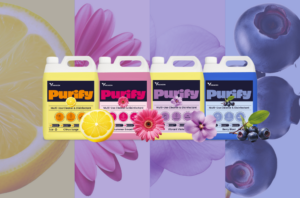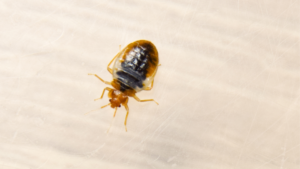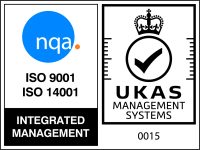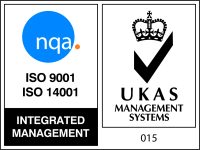How to Keep Your Commercial Kitchen Hygienic When Preparing Food
A recent study reveals 85% of customers consider cleanliness equal to food quality. And the FSA’s November report for 2019 indicated 31% of consumers consider the hygiene rating of a restaurant when deciding where to eat.
Being clean and hygienic is good for business. To help reduce the risk and protect customers, there are essential guidelines you can follow to keep your business spotless.
Since COVID-19, you can imagine customers will be even more conscious about germs and food hygiene when eating out.
Here are some good practices to follow to ensure you comply with the Foods Standards Agency (FSA) regulations. Follow these tips carefully to ensure you ace inspections, and don’t run into any trouble that could cost your business money. But first, some hazards to consider.
Hazards
Your kitchen might look clean. But without a tight cleaning regimen, unpleasant bacteria can soon rear its ugly head. Especially around the sink and in wet sponges, where pathogens can thrive for at least two days.
Contamination can occur anywhere. Seafood and raw meat carry a plethora of infectious germs that can cross-contaminate any area of your kitchen. Cutting boards, dish towels, cloths, sponges, countertops, and many more surfaces are frequently exposed to this risk.
Some common pathogens lurking in the kitchen are:
- E.coli
- Shigella
- Salmonella
- Campylobacter (increasingly common)
- Toxoplasmosis
- Hepatitis A
- Norovirus
E-coli and salmonella can live for a few hours on surfaces, but hepatitis A can survive for months. Infection with any of these pathogens can cause vomiting, stomach pain, fainting, and, less frequently – serious complications.
The best way to protect yourself and your customers is by disinfecting surfaces frequently and making sure you and your staff follow proper hygiene rules.
Personal Hygiene
Hand-to-hand and hand-to-food contact is the most common way foodborne illnesses are spread, highlighting the importance of frequent handwashing when preparing food.
All employees must sanitise their hands regularly to avoid the uncontrollable spread of bacteria.
The FSA advises that staff should wash their hands:
- Before preparing food
- After preparing food
- After touching raw food
- After handling food waste or bins
- After cleaning
- After blowing nose
- After touching phones, light switches, door handles, and cash registers
Preparing Food
More than 200 diseases are spread through food. And, with supply chains being complicated, there are ample opportunities for disease to spread. That means good hygiene during preparation is essential.
Hair should be tied back and covered using a suitable hat or hair net. Remove jewelry and do not touch your face and hair. Don’t smoke, spit, sneeze, eat, or chew gum when preparing food.
When handling raw meat, you should wash your hands before, throughout, and after touching the meat. You should do this before touching anything else and clean for a good 20 seconds at least.
Do not wash chicken. This is a common myth that actually increases the risk of cross-contamination. All you have to do is cook it through properly. Employees should use a meat thermometer to ensure meat is adequately cooked.
Using colour coded utensils can reduce the risk of cross-contamination when preparing food. This is recommended by the FSA. As an example, red handles for meat, blue for raw fish, green for vegetables and fruit, and so on. In the case this isn’t possible, use a dishwasher between the use of utensils to sterilize them for further use.
Disinfecting surfaces
There are lots of surfaces around the kitchen. That includes workstations, but also hand contact surfaces like door handles, fridge handles, taps, and surfaces touched by staff. These contact points should all be frequently disinfected.
Frequently used kitchen surfaces like workstations, sinks, and hobs, should be thoroughly cleaned at the start of the day, during food preparation, and at the end of the day. It’s important to also clean any hard-to-reach areas.
At the end of shifts, the cleaning cloths and sponges you’ve used throughout the day should be discarded and replaced with fresh ones, as they make ideal breeding grounds for bacteria.
What should you use to disinfect surfaces?
Regular soap may make things look clean, but it doesn’t disinfect surfaces. For commercial kitchens, a multi-purpose kitchen sanitizer can disinfect all surfaces while removing grease and oil. This is effectively a detergent and disinfectant combined.
Many establishments also use sanitising wipes to quickly disinfect surfaces that are used by customers throughout the day. This has pretty much become the norm since the coronavirus.
Storing food
With your customer’s health and reputation at stake, it’s imperative to follow effective hygiene protocols to store food safely.
Storing food at the correct temperature and covering containers is a basic necessity. Refrigerators should maintain temperatures at a maximum of 5 degrees celsius. Raw foods and ready-to-eat foods should be stored apart to reduce the risk of cross-contamination.
Regularly check for out of date ingredients at the start of the day and dispose of anything out of date. Any raw meat or fish should be stored chilled on the bottom shelf if stored in a fridge with various food items.
Empty rubbish as needed and keep it well away from food preparation areas. Don’t allow waste to overflow as this can lead to contamination and generally smells unpleasant.
Making sure the rules are followed
Adequate training should be provided to all employees, followed by a thorough cleaning schedule to ensure staff stick to the rules.
Training
Two strategic points are key to keeping your kitchen at the pinnacle of cleanliness. One is education, which has to be completed to a high enough standard for staff to do their job correctly. Secondly, staff who are trained need to put what they learn into practice.
There are several ways to train staff, from e-learning to level 3 qualifications and in-house training. The FSA has several extensive information packs and free training for food businesses.
Accountability
To ensure staff put their training into practice, issue cleaning duties to staff members depending on their jobs in the kitchen, and create a cleaning schedule like this.
Regulatory advice
The rules can be a little overwhelming, especially if your business is new. Thankfully, small businesses and retailers in the UK can follow safer food, better business (SFBB) guidelines to ensure compliance. There’s plenty of guidance. Hopefully, this has been a good starting point covering the essentials of food hygiene.








